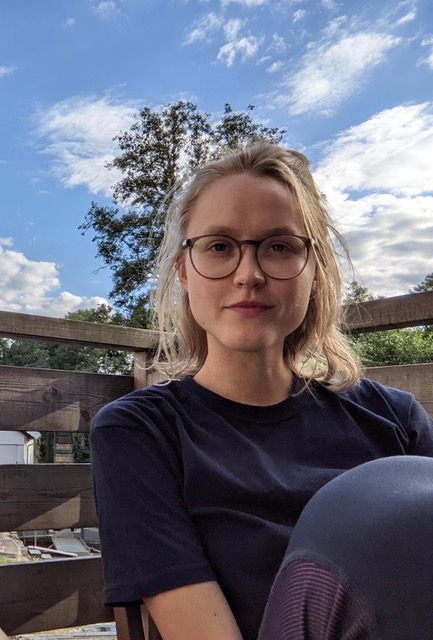Interview with BTU Alumna Luise Plaasche (Social Work | German-Romanian)
Luise Plaasche spent a social year in Romania after graduating from high school and got to know the language and culture. She then went on to study the German-Romanian Social Work study programme in Cottbus, with stays and a double degree in both countries.
How did you come across the study programme in Cottbus and why did you want to study across national borders?
I did an international voluntary service in Bucharest/Romania. At the preparatory meeting before the start of my stay abroad, we met in a seminar house of my sending organization, where flyers of the study programme were available. I took one of them because I was already interested in studying Social Work at the time. When I was in Romania and wanted to apply for study programmes in Germany, I found the flyer again. The course combined two of my great interests, Romania and Social Work. I saw it as an opportunity to go back to Romania soon, to improve my language skills and to learn more about the country.
What were the biggest challenges during your studies and how did you overcome them?
The first time in Timisoara, where I did my internship, was very challenging for me. Almost alone (a fellow student of mine was in the same city) in a foreign city where a language was spoken that I already knew quite well, but of course did not yet speak fluently. I shared an apartment with a Romanian man who had a completely different idea than me of what it meant to live in a shared flat and was also at a completely different point in his life. This led to conflicts that we had in Romanian. The semester at the Romanian university was due to start at the beginning of the corona pandemic. After two weeks of face-to-face teaching, we switched to online teaching. Six to eight hours of online courses in Romanian were very challenging, although also very educational!
What did you enjoy most about your studies?
That we German-Romanian students were a group that spent a lot of time together, exchanged ideas and tackled challenges together. Ms. Grosu, the course director, did a lot to ensure that we networked with each other beyond our year group (and national borders). I also enjoyed improving my Romanian and dealing more intensively with the topic of migration.
How have you changed during your studies, especially your intercultural skills?
I have improved my Romanian language enormously. I have a better understanding of the lives of people living transnationally. The fact that my stay in Romania gave me an insight into professional life, the social system and the geography of the country also helps me a lot in my work today. My studies taught me an attitude, especially when dealing with non-German-speaking clients, and I was sensitized to issues surrounding migration and discrimination, and much more.
What do you miss most from your periods of study?
I miss traveling across countries (regardless of vacations) and being in constant contact with new people from different countries.
Contact us
Stabsstelle Friend- and Fundraising; Alumni
T +49 (0) 355 69-2420
daniel.ebert(at)b-tu.de

